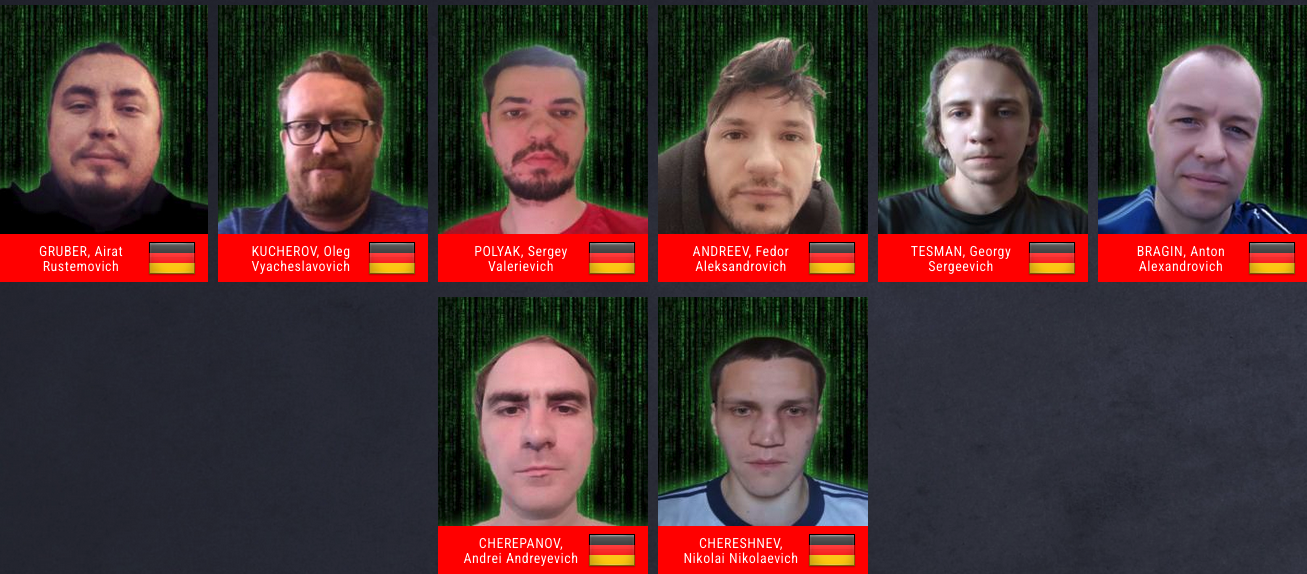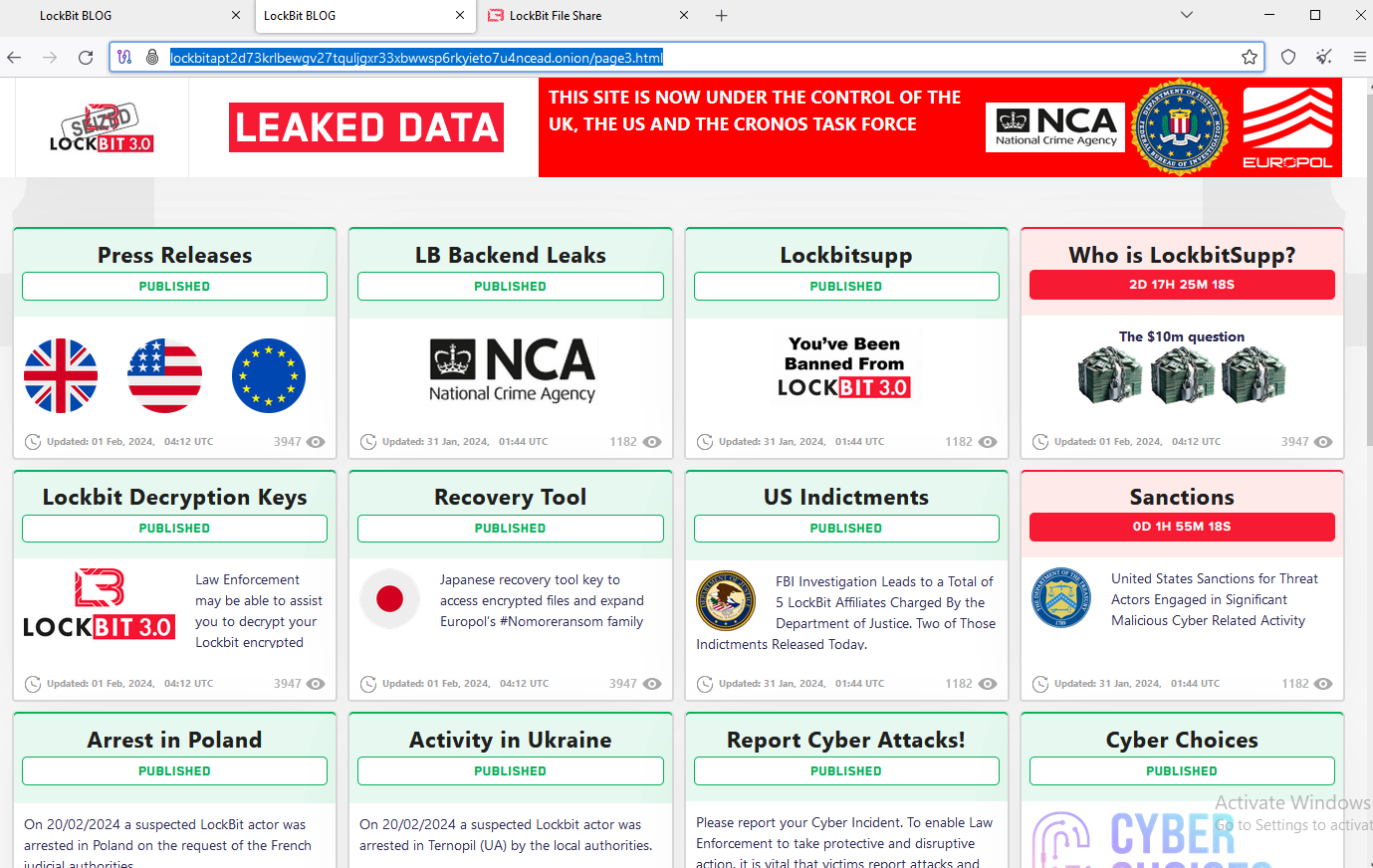Regulation enforcement businesses in the US and Europe at the moment introduced Operation Endgame, a coordinated motion in opposition to a few of the hottest cybercrime platforms for delivering ransomware and data-stealing malware. Dubbed “the biggest ever operation in opposition to botnets,” the worldwide effort is being billed because the opening salvo in an ongoing marketing campaign concentrating on superior malware “droppers” or “loaders” like IcedID, Smokeloader and Trickbot.

A body from considered one of three animated movies launched at the moment in reference to Operation Endgame.
Operation Endgame targets the cybercrime ecosystem supporting droppers/loaders, slang phrases used to explain tiny, custom-made packages designed to surreptitiously set up malware onto a goal system. Droppers are usually used within the preliminary levels of a breach, they usually permit cybercriminals to bypass safety measures and deploy further dangerous packages, together with viruses, ransomware, or spy ware.
Droppers like IcedID are most frequently deployed via e mail attachments, hacked web sites, or bundled with legit software program. For instance, cybercriminals have lengthy used paid adverts on Google to trick individuals into putting in malware disguised as widespread free software program, similar to Microsoft Groups, Adobe Reader and Discord. In these circumstances, the dropper is the hidden part bundled with the legit software program that quietly masses malware onto the person’s system.
Droppers stay such a important, human-intensive part of almost all main cybercrime enterprises that the preferred have become full-fledged cybercrime providers of their very own. By concentrating on the people who develop and keep dropper providers and their supporting infrastructure, authorities are hoping to disrupt a number of cybercriminal operations concurrently.
In response to an announcement from the European police company Europol, between Might 27 and Might 29, 2024 authorities arrested 4 suspects (one in Armenia and three in Ukraine), and disrupted or took down greater than 100 Web servers in Bulgaria, Canada, Germany, Lithuania, the Netherlands, Romania, Switzerland, the UK, United States and Ukraine. Authorities say in addition they seized greater than 2,000 domains that supported dropper infrastructure on-line.
As well as, Europol launched info on eight fugitives suspected of involvement in dropper providers and who’re wished by Germany; their names and images had been added to Europol’s “Most Wished” listing on 30 Might 2024.

A “wished” poster together with the names and images of eight suspects wished by Germany and now on Europol’s “Most Wished” listing.
“It has been found via the investigations up to now that one of many most important suspects has earned a minimum of EUR 69 million in cryptocurrency by renting out prison infrastructure websites to deploy ransomware,” Europol wrote. “The suspect’s transactions are continuously being monitored and authorized permission to grab these property upon future actions has already been obtained.”
There have been quite a few such coordinated malware takedown efforts prior to now, and but typically the substantial quantity of coordination required between legislation enforcement businesses and cybersecurity corporations concerned is just not sustained after the preliminary disruption and/or arrests.
However a brand new web site erected to element at the moment’s motion — operation-endgame.com — makes the case that this time is completely different, and that extra takedowns and arrests are coming. “Operation Endgame doesn’t finish at the moment,” the positioning guarantees. “New actions shall be introduced on this web site.”

A message on operation-endgame.com guarantees extra legislation enforcement and disruption actions.
Maybe in recognition that lots of at the moment’s high cybercriminals reside in nations which can be successfully past the attain of worldwide legislation enforcement, actions like Operation Endgame appear more and more targeted on thoughts video games — i.e., trolling the hackers.
Writing on this month’s problem of Wired, Matt Burgess makes the case that Western legislation enforcement officers have turned to psychological measures as an added technique to decelerate Russian hackers and reduce to the center of the sweeping cybercrime ecosystem.
“These nascent psyops embrace efforts to erode the restricted belief the criminals have in one another, driving delicate wedges between fragile hacker egos, and sending offenders customized messages exhibiting they’re being watched,” Burgess wrote.
When authorities within the U.S. and U.Okay. introduced in February 2024 that they’d infiltrated and seized the infrastructure utilized by the notorious LockBit ransomware gang, they borrowed the prevailing design of LockBit’s sufferer shaming web site to hyperlink as a substitute to press releases concerning the takedown, and included a countdown timer that was ultimately changed with the private particulars of LockBit’s alleged chief.

The feds used the prevailing design on LockBit’s sufferer shaming web site to characteristic press releases and free decryption instruments.
The Operation Endgame web site additionally features a countdown timer, which serves to tease the discharge of a number of animated movies that mimic the identical type of flashy, brief commercials that established cybercriminals typically produce to advertise their providers on-line. No less than two of the movies embrace a considerable quantity of textual content written in Russian.
The coordinated takedown comes on the heels of one other legislation enforcement motion this week in opposition to what the director of the FBI known as “doubtless the world’s largest botnet ever.” On Wednesday U.S. Division of Justice (DOJ) introduced the arrest of YunHe Wang, the alleged operator of the ten-year-old on-line anonymity service 911 S5. The federal government additionally seized 911 S5’s domains and on-line infrastructure, which allegedly turned computer systems operating varied “free VPN” merchandise into Web site visitors relays that facilitated billions of {dollars} in on-line fraud and cybercrime.

